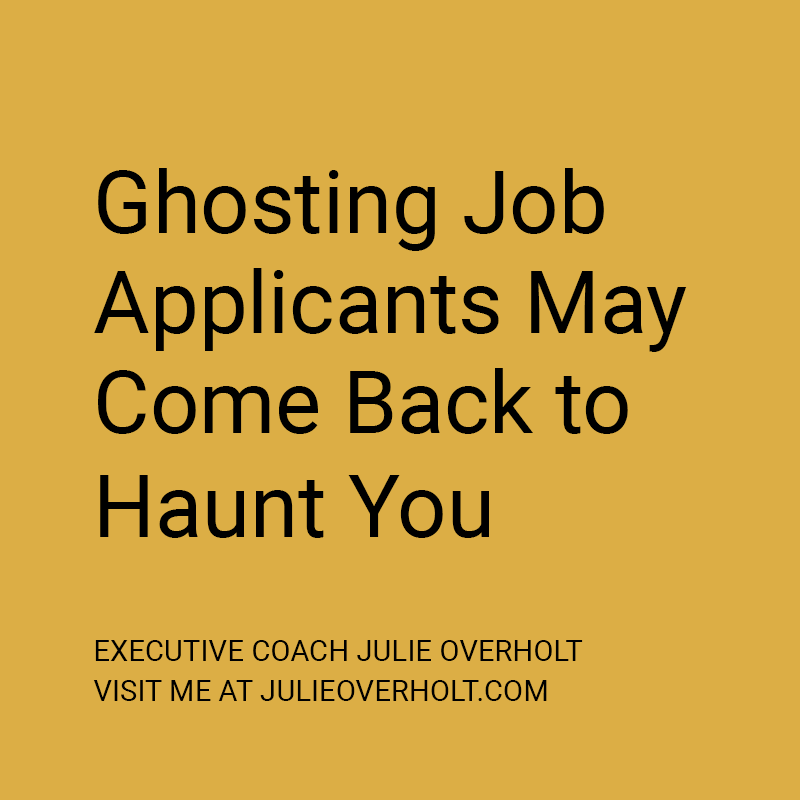While walking my dog this morning, I spoke with a neighbor of mine that is doing a casual job search. He has a job, so technically, he doesn’t need a job. Now, that’s exactly the right time to be looking for one’s next career opportunity. Taylor is a terrific young executive. Smart. Conscientious. Did I mention Eagle Scout? He has just the right amount of experience to put a big IT project on his back, and help an organization springboard successfully to visibility and profitability in their industry. And yet… as the title suggests, Taylor was ghosted after being told he was definitely going to get an introduction to the executive doing the hiring.
The Research Shows a Trend
Research from Glassdoor shows that job applicants are increasingly being ‘ghosted’ by employers. Their research indicates that over 75% of all job applicants have been ghosted after an interview by at least one company during their job search. A recent survey by Greenhouse, a New York City-based software company, revealed that 67% of 1200 job seekers were ‘ghosted’ after an interview–never hearing from that company again. It’s become sadly common even when your interviewer explicitly promises to get back to you either way.
It’s believed that ghosting is a sign of the employer’s poor management, disorganization, or indecision. They may have changed their hiring plans, faced budget cuts, or hired someone internally. They may also have convinced themselves that they have too many candidates to respond to. It seems more likely they simply lacked the skills or the courage to deliver bad news.
Ghosting Speaks Volumes
I tend to believe that the practice of ghosting tells candidates more about the person that interviewed them–and the organization they represent–than any number of interviews and screening tests. Maybe all those corporate news and reviews about the company are just the organization spit balling how they hope to be perceived. Can they honestly believe that ghosting candidates demonstrates living up to their company values or mission statement?
I challenge organizations that ghost job applicants to consider how much indifference, apathy or, sadly, embarrassment they are passively creating for their corporate brand through the practice of routinely ghosting job candidates. Keep in mind, job applicants are twice as likely to become customers of a brand when they had a good experience during the recruitment process, even if they did not get the job. And there’s more! The process of job ghosting is especially damaging when it’s done to applicants who have been referred by employees. When word gets out on this, employee referrals are likely to dry up, as they may feel betrayed and embarrassed by the behavior.
Consider Gratitude
So, here’s my advice if you are ghosted. Don’t get mad. Instead, exhale a big sigh of relief and feel grateful. No matter what the corporate messaging says on a company’s website or their LinkedIn profile, being ghosted does the employment candidates a great big favor. The organization you want to work for (and with) should keep its word even before you are on the payroll.

